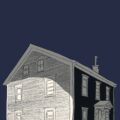On Friday, the US Supreme Court ruled camping bans aren’t unconstitutional, giving the green light to a growing number of state and local laws criminalizing homelessness.
In City of Grants Pass, Oregon v. Johnson with a 6-3 decision, justices ruled bans against camping and sleeping on public property don’t amount to cruel and unusual punishment under the Eighth Amendment. The order reverses an earlier ruling from the Ninth Circuit Court that blocked the city from enforcing its bans and bounces the case back to that court for additional proceedings.
“A handful of federal judges cannot begin to match the collective wisdom the American people possess in deciding how best to handle a pressing social question like homelessness,” Justice Neil Gorsuch wrote in majority opinion for the court. “The Constitution’s Eighth Amendment serves many important functions, but it does not authorize federal judges to wrest those rights and responsibilities from the American people and in their place dictate this nation’s homelessness policy.”
In a dissenting opinion, Justice Sonia Sotomayor wrote that the ruling “focuses almost exclusively on the needs of local governments and leaves the most vulnerable in our society with an impossible choice: Either stay awake or be arrested. The Constitution provides a baseline of rights for all Americans, rich and poor, housed and unhoused. This court must safeguard those rights even when, and perhaps especially when, doing so is uncomfortable or unpopular.”

The ruling solidifies a nationwide policy trend toward camping bans, which supporters claim encourage unsheltered people to seek housing and other assistance. But its impact in Grants Pass is more dubious, as an Oregon law prevents cities from punishing people for sleeping on public property.
The Ninth Circuit Court could weigh in on whether the Grants Pass bans carry excessive fines
Unsheltered homelessness reached a record high last year, prompting cities and states to create new camping bans.
Homeless service providers have told Streetlight camping bans dehumanize unsheltered people, don’t reduce homelessness and leave people with fines and charges that make it harder for them to get housing. Service providers also have said camping bans can make it harder for street outreach teams to find clients after camp sweeps.
Following lobbying efforts from conservative think tank Cicero Institute, Oklahoma, Florida and Kentucky passed laws banning camping in public this year.
In 2013, Grants Pass approved three ordinances banning camping on public property and sleeping on sidewalks and roadways. The ordinances carry fines of at least $295 and up to 30 days in jail, but court injunctions have prevented the city from enforcing the bans since 2020.
That’s when a district court ruled that if unsheltered people had nowhere else to go, the Grants Pass bans violated the Eighth Amendment, which prohibits cruel and unusual punishment. (Like many communities, Grants Pass doesn’t have enough shelter beds for its unsheltered residents, with only one bed for every six unsheltered people.)
[ Read more: As corporate landlords drive up Tennessee rents, tenants say their homeownership dreams are slipping away ]
Grants Pass appealed to the Ninth Circuit Court, which upheld the district court’s decision in 2022.
In addition to cruel and unusual punishment, the Eighth Amendment prohibits excessive bail and fines. The Supreme Court’s ruling didn’t address if camping bans violate that part of the amendment.
Dissenting justices noted that before the case made it to the Supreme Court, the district court ruled the fines were punitive, disproportionate to the offense and excessive. The Ninth Circuit didn’t consider this issue during Grants Pass’ appeal, but as the case moves back to that court, it can consider whether this issue has merit, court records show.
Ruling says the Grants Pass camping bans don’t criminalize homelessness
Cities can’t criminalize people because of their status, a legal term for someone’s state of being when they aren’t doing anything else. Having a substance use disorder or living in poverty are both examples of statuses.
But Gorsuch wrote that the camping ban doesn’t criminalize unsheltered people based on a status.
“Under the city’s laws,” Gorsuch wrote, “it makes no difference whether the charged defendant is homeless, a backpacker on vacation passing through town or a student who abandons his dorm room to camp out in protest on the lawn of a municipal building.”
“That describes a fantasy,” Sotomayor responded in the dissenting opinion, citing testimony that Grants Pass police weren’t aware of housed people ever receiving citations. “Officers testified that laying on a blanket enjoying the park would not violate the ordinances and that bringing a sleeping bag to look at stars would not be punished. Someone violates the ordinance only if he or she does not have another home to go to. That is the definition of being homeless.”
[ Read more: Housing or treatment first? This Oklahoma shelter highlights the complexity of fighting homelessness ]
The ordinances only apply to someone using bedding for a temporary place to live, another sign the law is used exclusively to police unsheltered people, dissenting justices argued.
“The status of being homeless (lacking available shelter) is defined by the very behavior singled out for punishment (sleeping outside),” Sotomayor wrote. “The majority protests that the ordinances ‘do not criminalize mere status.’ Saying so does not make it so. Every shred of evidence points the other way.”
The dissenting justices argued the intention behind the bans was to push unsheltered people out of Grants Pass.
During a 2013 Grants Pass City Council meeting to address homelessness, former council president Lily Morgan said: “The point is to make it uncomfortable enough for them in our city so they will want to move on down the road.”
The dissenting opinion cited another councilmember adding: “Maybe they aren’t hungry enough or cold enough … to make a change in their behavior.” The council considered denying unsheltered people services and resources like food and clothing, court records show.
Connect with resources mentioned in this story:
- Read the ruling in City of Grants Pass, Oregon v. Johnson
- Read a transcript of oral arguments in the case
Contact Streetlight editor Mollie Bryant at 405-990-0988 or bryant@streetlightnews.org. Follow her reporting by joining our newsletter.
Streetlight, previously BigIfTrue.org, is a nonprofit news site based in Oklahoma City. Our mission is to report stories that envision a more equitable world and energize our readers to improve their communities. Donate to support our work here.



